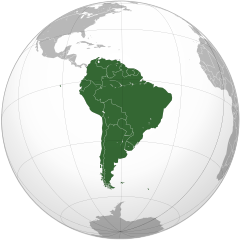In the realm of religious discourse, the Bahá’í Faith offers profound insights into humanity’s spiritual evolution, particularly within the context of America’s spiritual destiny. The founder of this faith, Bahá’u’lláh, articulated pivotal principles that encompass the idea of unity, progress, and the unfolding of a new societal paradigm. His teachings resonate deeply with the aspirations of a nation that was envisioned to play a significant role in the establishment of a just and peaceful world order.
The notion of destiny is intimately tied to a sense of purpose. America, as a melting pot of cultures and ideologies, stands at a crossroads, faced with existential challenges yet endowed with immense potential. The Bahá’í perspective posits that this potential is not merely coincidental but woven into the very fabric of the nation’s identity. Far beyond geographical boundaries, the teachings of Bahá’u’lláh invite individuals to ponder their moral responsibilities in fostering unity and collaboration among diverse peoples.
Fundamentally, the appeals made by Bahá’u’lláh center around the principle of unity in diversity. He advocated for the recognition of the oneness of humanity, which serves as a cornerstone for the Bahá’í Faith. Such an ideal is increasingly pertinent in contemporary America, where social fragmentation often undermines collective progress. His proclamations invite individuals to transcend superficial differences, harnessing a collective spiritual momentum that can propel societies towards greater harmony and understanding.
The emphasis on unity is paralleled by a strong commitment to justice, a theme that permeates Bahá’í teachings. Bahá’u’lláh’s assertive insistence on the establishment of justice as an essential component of peace resonates powerfully within a society that grapples with issues of inequality and systemic injustice. In this regard, Bahá’í thought calls upon individuals to reflect on their roles in nurturing a just community, urging them to become catalysts for transformation. This obligation extends beyond passive acceptance, demanding active engagement in societal endeavors that promote equitable conditions for all.
Another significant aspect of Bahá’í teachings relevant to America’s spiritual journey is the emphasis on education. Bahá’u’lláh viewed education as a fundamental right and a powerful tool for social transformation. It serves not merely as a means to better oneself, but as a collective responsibility toward the elevation of society. In this context, the pursuit of knowledge is seen as a sacred duty, bolstering both personal growth and communal advancement. The intrinsic value placed on education aligns with America’s historical ethos of opportunity and enlightenment. However, it also calls for a reassessment of educational practices to ensure they nurture both intellectual and moral capacities.
At the core of Bahá’u’lláh’s teachings lies the belief in the transformative power of love. He espoused the idea that love is the most potent force for personal and societal change. This love transcends individual desires and extends towards collective well-being, encapsulating an altruistic impulse that inspires individuals to act. In a nation characterized by individualism, Bahá’u’lláh’s exhortation to cultivate a spirit of love, compassion, and service becomes particularly salient. The call to define success not merely in terms of material accumulation but through acts of kindness and service embodies the essence of a spiritually awakened society.
The concept of consultation is also crucial in Bahá’í teachings. Individuals are encouraged to engage in open, respectful dialogue, fostering environments in which diverse perspectives can be expressed and appreciated. This participatory approach contrasts sharply with adversarial political discourse that often pervades contemporary society. The practice of consultation is indicative of a mature spiritual civilization, where collective decision-making becomes a manifestation of unity and shared purpose. In the context of America’s democratic framework, this could signify a transformative shift towards inclusivity and collaboration.
Moreover, Bahá’u’lláh’s emphasis on the elimination of prejudice resonates deeply within the American consciousness. He admonishes believers to work against all forms of prejudice, be it racial, gender-based, or religious. The eradication of such barriers is paramount to realizing the potential of a united and harmonious society. America, often described as a land of promise, must grapple with its historical legacies of prejudice and discrimination in the pursuit of its spiritual destiny.
The prophetic vision articulated by Bahá’u’lláh includes the establishment of a global commonwealth, a theme that underscores the interconnectedness of all nations. America, as a leader on the international stage, is called to champion principles of peace and cooperation. This vision is rooted not in isolationism, but in a profound recognition of interdependence amidst diversity. The pursuit of global peace and justice is integral to fulfilling America’s spiritual vocation as a beacon of hope and progress for the world.
In summary, the teachings of Bahá’u’lláh hold significant implications for America’s spiritual destiny. They challenge individuals to embrace unity, pursue justice, prioritize education, cultivate love, engage in consultation, confront prejudice, and recognize global interdependence. Each of these principles is interwoven, creating a holistic framework that fosters both individual and collective flourishing. As America navigates the complexities of the contemporary world, the insights offered by Bahá’u’lláh can serve as a guiding light, illuminating a path toward a spiritually enriched and unified society, ultimately contributing to the realization of a peaceful global community.
